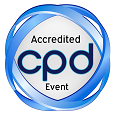
Amitava Das
CSIR-IICT, India.
Title: Stem cell delivery using porous polymer scaffold -protects from oxidative stress for tissue regeneration
Biography
Biography: Amitava Das
Abstract
Mesenchymal and hematopoietic stem/progenitor cells are key cellular components of regenerative medicines, often exploited for translational benefits because of their multi-lineage differentiation and self-renewal capabilities. My lab is presently engaged in studing molecular mechanisms that regulates the cellular physiology of these adult stem cells, MSCs and HSPCs in the hypoxic environment at bone marrow stem cell niche. Hypoxia-induced ROS (at low concentration) at the niche differs from the pathological ROS (at large bolus) that are observed in any tissue injury. In vitro molecular mechanisms of signal transduction pathways in both MSCs and HSPCs exposed to low oxidative stress depicted a characteristic signature in each cell type. An efficient anti-oxidant mechanism was observed to counter balance the oxidative stress in these cells. Furthermore, translational aspects of a wide range of adult stem cells were investigated using an excisional splint wound murine model that mimics the tissue regeneration pattern in human. We recently designed and synthesized biodegradable porous polymer scaffolds under controlled conditions that depicted a marked protection from on-site oxidative stress, regulation of inflammatory (decreased pro-inflammatory and increased anti-infla mmatory) mediators, enhanced engraftment (Sca-1+Lin-CD90+CD133+) and increased neo-vascularization (CD31) in this pre-clinical model. We have also elucidated the molecular mechanisms occuring during penetrability of polymer network by cells via an Akt and Erk-dependent activation of MMP-13 and MMP-2. This lecture will highlight the successful endevours undertaken to overcome the challenges posed by the injury microenvironment onto stem cell –engraftment, proliferation, differentiation and regeneration of the damaged tissues for an efficacious cell transplantation therapies.

